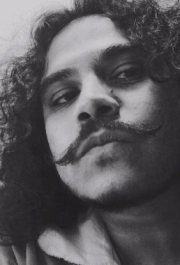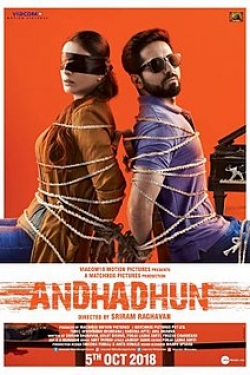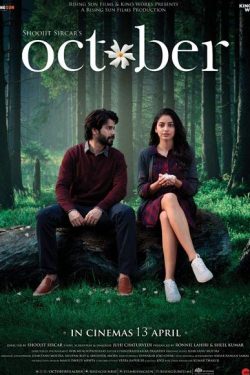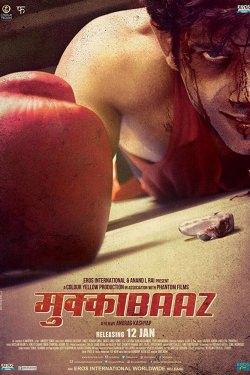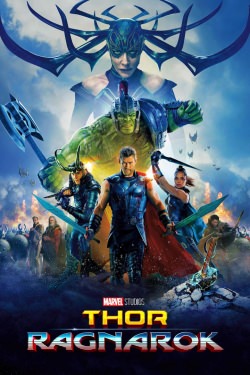Top Rated Films
Raja Sen's Film Reviews
-
There is much craft on display, and some lovely moments, but the immense promise shown by the first half turns out as hollow as a politician’s. Soaked in sloppy sexism, the second half has the heroine repeatedly tortured — cheated, slapped, bound, gagged, shot at and abused — and yet the film decrees that she forgive. In the heartlands the film is set in, maafi is an all-absolving concept, an irretractable token of instant forgiveness, like a church confessional. Ishaqzaade, despite its artistry, deserves no pardon.
-
The film doesn’t stick to the guns the concept inherently offers. The basic idea is a fine one, offering both room for smart humour and murky moral ambiguity, but while Kapoor and his (mostly) competent cast sharply enough conjure up some smiling moments, the film squanders the most potentially thrilling aspects of the idea and leaves us with something half-baked. It goes from fantastical to formulaic, and, to be honest, there isn’t even a relevant reason for the hero to be fat — that decision ending up as ignobly as a movie poster gimmick.
-
A lot would have been forgiven — as it often is with these producers — if the film had either a meatier plot or a more gripping narrative, but this one’s just tiresome as the obvious story drags on. A couple of chase sequences, particularly one through the arteries of a Dargah, are slickly shot, but even these lose their charm as they get needlessly long-winded. And finally, telling a bad actress she looks like Angelina Jolie is just cruel — to both her and to the audience forced to sit there while she tries to smile coyly through a silly pout.
-
Yet it is the excess that suffocates all the magic, originality dying out for lack of room to breathe. Kashyap gets flavour, setting and character right, but the lack of economy cripples the film. There is a lot of gunfire, but like the fine actors populating its sets, Wasseypur fires too many blanks.
-
Hate Story doesn’t do either of these, and instead moans a lot. Literally. There is so much audible huffing, grunting, puffing, sighing, groaning and wheezing in this film that it feels like watching Rafa Nadal play Maria Sharapova with Monica Seles [ Images ] occasionally swinging by to show them how to achieve proper volume from the baseline. All these sounds are punctuated by ludicrous dialogue delivered so poorly (and loudly) that it fails even to achieve so-bad-its-good status. Pity, that.
-
A sweet but slapdash effort, this is, all in all, quite like watching a wedding video. Just not shot by someone with as much panache as Bittoo. And a shaadi video — one without folks you care about — always, invariably feels groanfully long.
-
Housefull 2 is shamefully bad. So bad that Ranjeet – the rapey villain of yore – who appears in one scene, is the most dignified thing about the film.
-
Agent Vinod wants to be funny, and while there is the occasional burst of wit, it’s exhaustingly rare. Sriram Raghavan is, first and foremost, a film fanboy, and sure this film has references sprinkled through it – the greatest salutes being to the 1978 Don, with a mention of that immortal character’s dislike of a person’s shoes, and with inconveniently dead Iftekhaars who are the only ones aware of a protagonist’s true allegiance – it doesn’t make the cut.
-
A very predictable con-versus-con film can be made enjoyable, but it needs to be breezy and engaging. We need to want to take sides and we need to care about the twists, and by the time Ladies Vs Ricky Bahl winds down in extremely simplistic fashion, we just don’t care anymore. If this were a better-made film, we might have been justifiably outraged by the lame sexism meted out at the climax, but for now yawning seems reaction enough.
-
Walk away from this disaster and try harder next time. (Is it okay if we don’t hold our breath just yet?)

